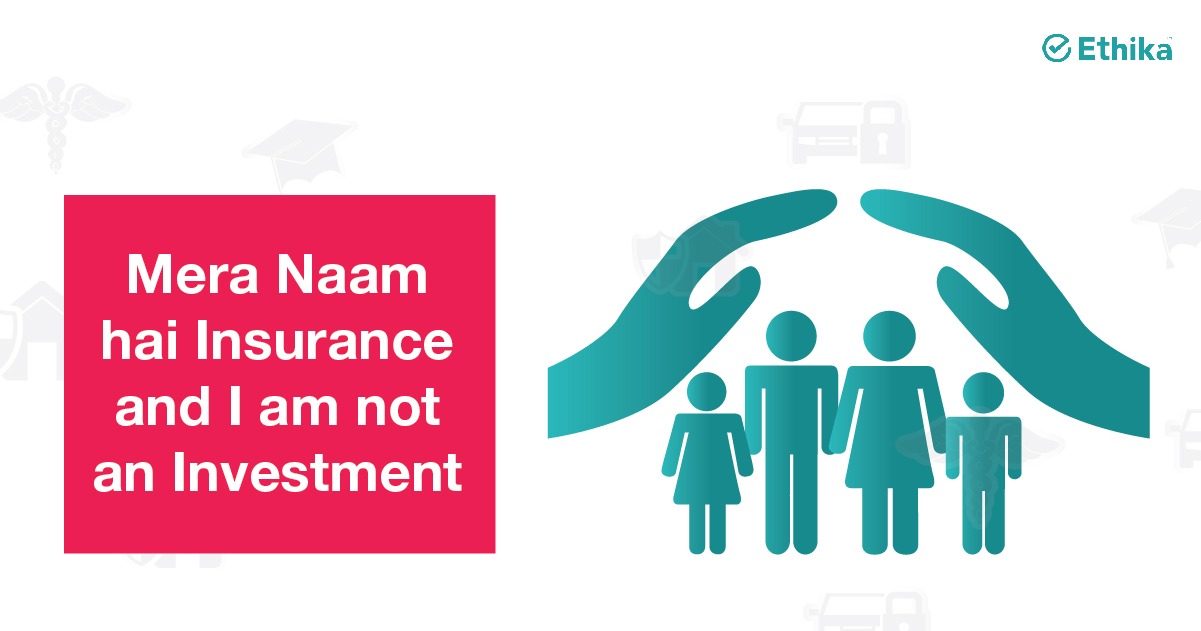
What’s on this page?
Lack of awareness
Indian culture is rich in a lot of things, but financial consciousness is not one of them. Children and young adults are educated in social do’s and don’ts, but not in matters of financial planning. All of us have seen examples around us when risk planning is discussed on the hind side.
But when life is running smoothly, we believe this party is going to last forever, and so we never plan for bad times.
We believe that our health is abundant and here to stay forever, but then we realize it’s not the case. It is not until we see a family ruined by the bypassing of a breadwinner that we put our responsibilities in perspective and plan for a term or life cover. But the sad truth is that not every person gets that timely wake-up call, that firm nudge in the right direction.
Even when we buy an insurance policy, we only spend as much as others do or sometimes even lesser, all the while viewing insurance as an expense and not as the only dependable asset in the time of utmost need.
Affordability
Insurance costs money, and many people cannot afford to buy sufficient cover. However, things are changing now. With a lot of insurance plans available online, people can choose what suits their needs.
Poor marketing
Insurance is an intangible product; it is a promise that the insurance provider will provide compensation if a loss occurs. And selling a promise is no mean feat. Most people don’t read the policy document or don’t understand what they read in it. They rely on what is advertised about the product. But advertisements or marketing campaigns conducted by insurance sellers often adopt narratives that mislead customers. They provide incomplete or incorrect information to the customers, leaving them at the risk of being inadequately insured.
Apart from this, people in the rural and semi-urban parts of India still rely on age-old investment tools such as gold, cash deposits, etc. They believe that if ever a loss occurs, they can use financial borrowing methods to make good the loss rather than spend on insurance where they feel that there is an expenditure even without the occurrence of loss. However, what they fail to realise is that the loss amount coupled with the cost of borrowing could be very huge whereas the premium for an insurance policy is a meagre amount, in comparison. Such awareness and education need to form the basis of marketing insurance products so that people in every part of the country understand the importance of insurance.
Lack of clarity regarding returns on the policy
Many understand the need for insurance but still look at it primarily as a money-making investment option if not tax saving. They feel that they are compensated only if the policy offers returns. But insurance is not an investment tool and should not be treated as one. Those looking for insurance products that provide investment options need to understand that such products may provide neither good investment returns nor adequate insurance protection. Hence, it is important for the buyers to educate themselves and take such mixed instruments only over and above a core Health or life/term plan.
Conclusion:
Insurance is a safe and reliable tool to manage unexpected financial losses in life, which in most cases tend to be huge amounts. However, looking at insurance as only a recurring expense or a tool that can provide returns is diluting the purpose of insurance. Hence, it is important to understand how essential insurance is for you. While making choices regarding your insurance or insurance-linked product your priority should be to secure sufficient risk cover, and everything else can be an add-on. Otherwise, you run the risk of being left with only cream and no cake!